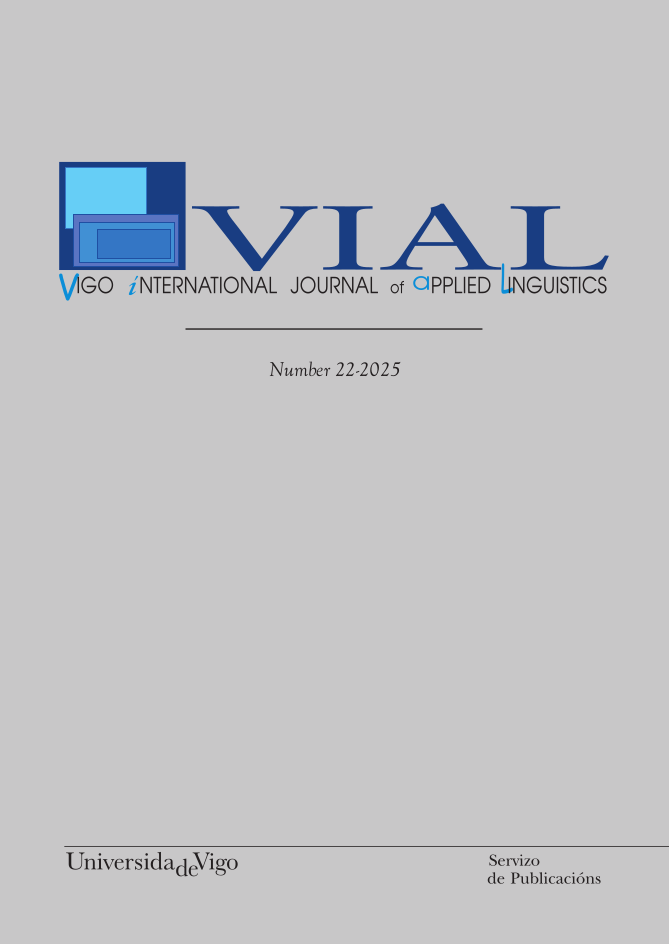Examining two form-focused instruction combinations and their relationship with language-analytic ability in young learners: A study on the English possessive determiners his/her
DOI:
https://doi.org/10.35869/vial.v0i22.5600Palabras clave:
form-focused instruction (FFI), metalinguistic explanations (ME), language-analytic ability, young learners of English as a Foreign Language (EFL), dictoglossResumo
Recent work conducted in input-limited classrooms with young learners has made a call for the incorporation of form-focused instruction (FFI) in the form of focused tasks and/or additional treatments that could help learners expand their attention to grammar. Current research has also uncovered the need for the examination of the interaction between FFI, individual differences, such as language-analytic ability, and language achievement. Thus, this paper examines the effect of two forms of FFI (dictogloss+self-correction and dictogloss+metalinguistic explanations [ME]) on learners’ accuracy in the use of the possessive determiners his/her in the final product of the dictogloss tasks performed. It also looks into the interface between FFI and languageanalytic ability as measured by the MLAT-ES for child language. To do so, 33 Basque/ Spanish bilingual learners of English (aged 10-11) were split into a dictogloss+selfcorrection and a dictogloss+ME group. Participants were asked to complete three collaborative dictogloss tasks targeting the possessive determiners his/her in three consecutive weeks. The dictogloss+ME group achieved greater accuracy in the use of the possessive determiners his/her than the group with self-correction. Likewise, the benefits observed in the former were independent of participants’ language-analytic ability, all of which suggests a blurring effect of the ME treatment received.
Descargas
Descargas
Publicada
Número
Sección
Licenza
Libros UVigo é o portal de publicación en acceso aberto das revistas da Universidade de Vigo. A posta a disposición e comunicación pública das obras no portal efectúase baixo licenzas Creative Commons (CC).
Para cuestións de responsabilidades, propiedade intelectual e protección de datos consulte o aviso legal da Universidade de Vigo.



